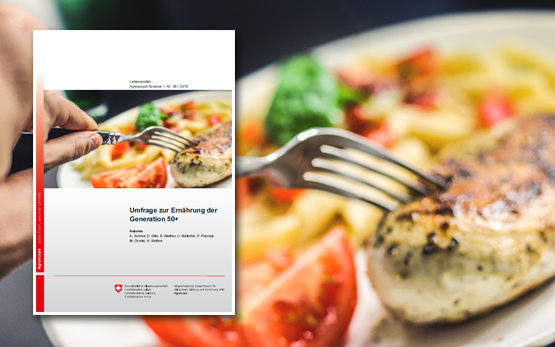Guggisberg D., Egger C., Bosshart A., Fehér N., Eggerschwiler L., Schmidt R., Portmann R.
Impact of genetic κ-casein variants (A, B, E) on chymosin-induced milk coagulation properties: Application of a new LC–MS-based genotyping method.
International Dairy Journal, (155), 2024.
Berger T., Aeschlimann T., Haldemann J., Fehér N., Winkler H.
Beurteilung von Schweizer Käse bezüglich der ParaTB-Anforderungen für den Export in die EAWU: Beurteilung z.H. Plattform Agrarexport (PAE).
Hrsg. Agroscope, 29. Januar, 2024, 3 S.
Fehér N.
Umsetzung Frühwarnsystem Listerienmonitoring.
In: Weiterbildung CASEI (Fribourg Senser). 14. November, Zollikofen. 2023, 1-45.
weitere Sprachen: französisch
Fehér N.
Listeria: Artisanal cheese factory approach FACE 2023.
In: FACE. 12 october, Grangeneuve. 2023, 1-29.
Fehér N., Haldemann J.
Application du monitoring pour la détection précoce de listeria.
In: formation continue ARQHA. 29. novembre, Montricher. 2023, 1-59.
Fehér N.
Analyse sensorielle des fromages.
In: formation continue CASEI (FR). 16. mars, Romont. 2023.
Fehér N.
Comment éviter les défauts de qualité du Vacherins Fribourgeois AOP d’alpage.
In: Formation continue Alpage FR 2023. 1 mars, Pringy. 2023.
Fehér N.
Comment éviter les défauts de qualité du Vacherins Fribourgeois AOP d’alpage.
In: CASEI. 1. février, Pringy. 2023.
Fehér N.
Sensorische Beurteilung von Käse.
In: Weiterbildung CASEI (Bern). 7. Februar, Zollikofen. 2023.
Fehér N.
Einfluss von kühlen und wärmen der Milch auf den Käseteig.
In: Weiterbildung CASEI (Bern). 7. Februar, Zollikofen. 2023.
Fehér N.
Säuerungskultur für die Herstellung von Vacherin Fribourgeois AOP.
In: Interprofession Vacherin Fribourgeois. 31. Januar, Grangeneuve. 2023.
Fehér N.
Culture d’acidification pour la fabrication du Vacherin Fribourgeois AOP.
In: Interprofession Vacherin Fribourgeois. 31. janvier, Grangeneuve. 2023.
Fehér N., Joye C.
Analyse sensorielle des fromages.
In: Formation continue CASEI (FR). 19. janvier, Ursy (CH). 2023.
Guggenbühl B., Beutler E., Joye C., Haldemann J., Fehér N.
Analyse sensorielle des fromage : Formation fromagers.
In: Formation continue JU-JUBE. 17. janvier, Saignelégier. 2023.
Fehér N.
Groupes de discussion et formations continues 2022.
In: Séance annuelle IPG. 27. janvier, Pringy. 2023.
Fehér N.
Les lactobacilles hétérofermentaires.
In: Séance annuelle IPG. 27. janvier, Pringy. 2023.
Häni W., Fehér N., Aeschlimann T., Haldemann J.
Einfluss des Gerinnungsmittels auf die Qualität von Raclettekäse aus thermisierter Milch.
Agroscope Transfer, 495, 2023, 1-13.
weitere Sprachen: französisch
Maurer J., Fehér N.
Ziegen- und Schafkäse.
In: Kurs für Schaf- u. Ziegenhalter. 29. März, Hrsg. Landwirtschaftszentrum, Visp. 2023.
Guggenbühl B., Dreier M., Fehér N., Beutler E., Fleuti C., Schmidt R., Von Ah U., Lüscher Bertocco M., Javet M., Bachmann H.-P.
Newly launched: Swiss center of excellence for raw milk products.
In: 23ème colloque du Club des Bactéries Lactiques. 08. Juni, Rennes. 2022.
Ingenhoff J.-E., Berger T., Mühlemann M., Fehér N.
Phtalates dans l'industrie laitière : Éviter les plastifiants problématiques dans le lait et les produits laitiers.
In: Journée des conseillers en fromagerie romands et tessinois. 27 août, Cresciano. 2021, 1-17.






